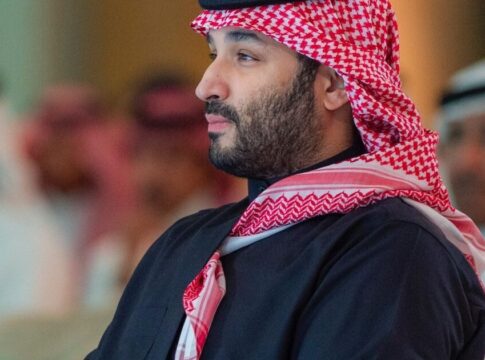In a move to amplify its global economic influence and foster deeper ties with Africa, Saudi Arabia is set to invest an astounding $41 billion into the continent, with a significant focus on the lesser-known region of Limpopo in South Africa. This investment aligns with Saudi Arabia’s ambitious Vision 2030, spearheaded by Crown Prince Mohammed bin Salman, aiming to diversify the Kingdom’s economy and reinforce its presence on the international stage.
Saudi Arabia’s connection with Africa spans over six decades, rooted in mutual cooperation and strategic partnerships across various sectors such as trade, healthcare, and sustainable development. The recent announcement by Finance Minister Mohammed bin Abdullah Al-Jadaan highlights the Kingdom’s intent to bolster Africa’s economic landscape, particularly in sub-Saharan regions, through substantial financial commitments and infrastructural developments.
A notable chunk of this investment, approximately £4.1 billion, is earmarked for the development of a platinum smelter and metals refinery in Limpopo. This venture is part of a broader agreement involving the Kingdom’s Ministry of Investment and Ajlan & Bros Company for Mining, which has signed a memorandum of understanding to develop PGM (Platinum Group Metals) smelters and base metals refineries in the region. These facilities are expected to become pivotal in Saudi Arabia’s strategy to elevate its mining industry as a key contributor to the national GDP.
Saudi Arabia’s Vision 2030 outlines a transformative agenda to expand its economic horizons beyond oil, positioning the mining and minerals sector as a cornerstone of its future economy. Investing in Africa, particularly in regions rich in natural resources like Limpopo, aligns with this vision. The initiative is expected to not only enhance Saudi Arabia’s economic footprint but also contribute significantly to Africa’s economic growth by creating jobs, boosting local industries, and promoting technological exchange.
According to a report by the African Development Bank, investments in infrastructure and resource development can lead to sustainable economic growth in Africa by increasing productivity and fostering innovation. Saudi Arabia’s financial injection into African startups, financing projects, and private sector investments—amounting to £3.9 billion, £7.9 billion, and £19.8 billion respectively—illustrates a comprehensive approach to supporting the continent’s economic framework.
As part of its investment strategy, Saudi Arabia is committed to providing strategic guidance for projects like the proposed PGM Smelter and the Waterberg Project in South Africa. Minister in the Presidency, Khumbudzo Ntshavheni, hailed this collaboration as a “strong vote of confidence” in South Africa’s potential, underscoring the mutual benefits of such international partnerships.
However, the journey is not devoid of challenges. Al-Jadaan acknowledged that sovereign debt remains a significant hurdle for many African nations. Addressing this issue requires concerted efforts from international communities to ensure that economic growth is inclusive and sustainable.
Limpopo, already celebrated for its breathtaking landscapes and rich biodiversity, is poised to become a hub of industrial activity and innovation, driven by Saudi Arabia’s investments. The region’s appeal is further enhanced by rumors of the Ekland Resort, a luxurious eco-tourism and hunting resort reportedly owned by a Saudi national, adding a layer of intrigue and exclusivity to Saudi Arabia’s African ventures.
Saudi Arabia’s substantial investment in Africa represents a strategic pivot towards fostering long-term economic partnerships and diversifying its global economic engagements. As these initiatives unfold, they promise to reshape the economic landscapes of both Saudi Arabia and Africa, paving the way for a future of shared prosperity and development.


